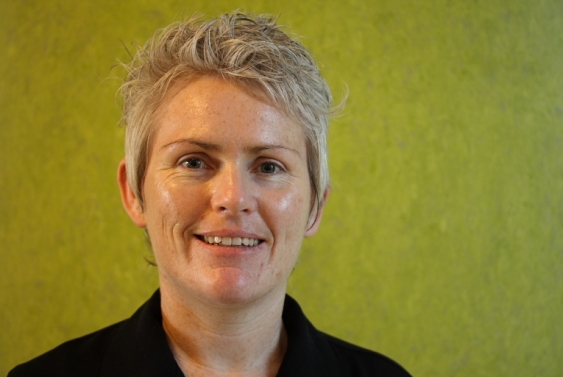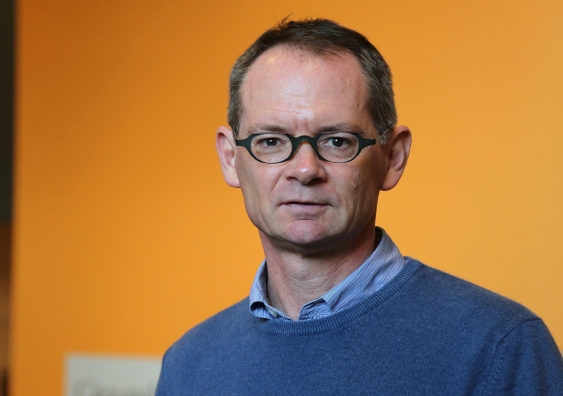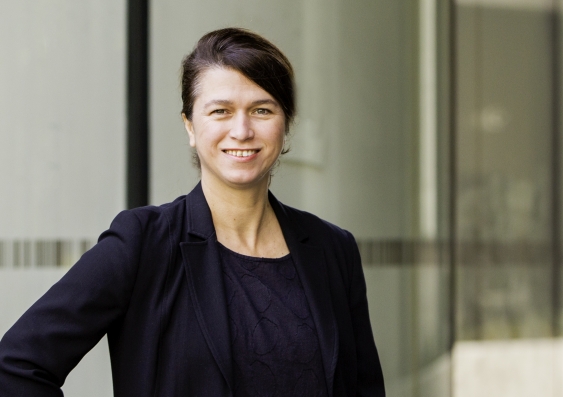UNSW has risen to third among the Go8 universities for National Health and Medical Research Council funding in 2018.
Projects to eliminate tuberculosis by 2030 and research programs to boost support after dementia diagnosis are some of the major UNSW Sydney winners in this year’s final round of National Health and Medical Research Council (NHMRC) funding announced today.
The result puts UNSW third among the Group of Eight (Go8) and all Australian universities for 2018 NHMRC funding, rising from fourth in 2017. This year, $82.8 million was awarded to 90 projects administered by UNSW, with a success rate of 23.2%. This is a jump from 80 projects in 2017, and a success rate of 19.7%.
In today’s announcement, $53.5 million was awarded to UNSW researchers across Medicine and Science faculties for project grants, an increase of $22.8 million compared with last year. UNSW picked up 12 five-year project grants and more than $2.2 million for dementia research grants, with both TRIP Fellowships and Postgraduate Scholarships also increasing compared with last year.
The Minister for Health, Greg Hunt, announced on Wednesday that a total of 682 projects across Australia would receive $526 million worth of funding for projects in areas including cancer, cardiovascular disease, diabetes and mental health.
UNSW Deputy Vice-Chancellor (Research) Professor Nicholas Fisk said these new awards underscored the exceptional span and scope of discovery by UNSW’s investigators in tackling society’s major health challenges – including cancer, infectious disease and brain disorders.
"Year-on-year our project grant funding is up $23 million, or around 75%, in part due to more long-run grants. This is testimony to the dedication of our outstanding researchers in optimising health outcomes for people around the world."
UNSW recipients include:
Professor Guy Marks, from South Western Sydney Clinical School, UNSW Medicine and the Woolcock Institute, has received $6.5 million to test the interventions designed to eliminate tuberculosis by 2030.
The five-year household survey will use skin tests to screen approximately 75,000 people for TB infection in Ca Mau province, in the Mekong Delta region of Vietnam. Professor Marks expects that about one third of all people tested will have TB infection and will undergo further assessment for active TB. Most of those people tested won’t have active TB, but will be offered treatment for the infection to stop the active disease developing.
"TB is the leading infectious disease killer in the world despite diagnostic tests being available for more than 100 years. This ‘universal test and treat’ approach to screening for TB will go a long way towards eliminating TB as a public health problem globally," said Professor Marks.
Professor Henry Brodaty, from UNSW Medicine’s Centre for Healthy Brain Ageing (CHeBA), received $1.5 million for two projects in the Boosting Dementia Research Grants program, a federal initiative to provide $200 million over five years to fast-track dementia research.
Professor Brodaty will work with international teams to analyse dementia risks and improve the quality of care for people diagnosed with neurodegenerative disease.
"Despite national guidelines for the management of dementia, people diagnosed with Alzheimer's, their families and carers often receive inadequate care," said Professor Brodaty. "The first project will involve developing international toolkits co-designed with people with dementia and clinicians to facilitate high quality post-diagnostic care and a positive quality of life."
Professor Brodaty’s second project aims to understand the link between socialisation and lower risk of dementia by analysing large global data sets and designing interventions to improve social connections.
Associate Professor Claire Vajdic, from the Centre for Big Data Research in Health, was awarded $1.025 million to analyse cancer risk in women and children after medically assisted reproduction. Associate Professor Vajdic and her team will study evidence for 690,000 Australian women and 220,000 children exposed to fertility treatments.
"The question of whether medically assisted reproduction increases the risk of cancer in women and their children will be resolved in the largest health record linkage study that combines data from Australia, the UK and four Nordic countries," said Associate Professor Vajdic.

Associate Professor Claire Vajdic will analyse cancer risk in women and children after medically assisted reproduction.
Professor Merlin Crossley, from the School of Biotechnology and Biomolecular Science, received $560,000 to examine CRISPR-mediated genome editing to map the genetic switch involved in turning fetal globin off after birth.
"Boosting the output of certain globin genes is seen as a cure for devastating diseases like sickle cell anaemia," says Professor Crossley. "Our team has led the way in using CRISPR-gene editing to target the globin control regions. The new grant will allow us explore new approaches that may go beyond gene editing to be more applicable in developing countries."
Dr Ryan Courtney, from UNSW’s National Drug and Alcohol Research Centre, received $1.8 million for a randomised trial to determine whether tailored text messaging can help people stop smoking.
"Our previous research found that many smokers prefer text message support to help them quit," Dr Courtney said. "Messages sent to mobile phones are convenient, can be tailored to smokers’ individual circumstances, and are accessible anytime. New treatments with high reach are needed for socially disadvantaged groups where high smoking rates persist."
Professor Justin Gooding, from the School of Chemistry, received $750,000 to build improved 3D cancer models with 3D printing. Professor Gooding and his team will use bespoke 3D bioprinting to understand critical variables in the effectiveness of immune therapies for treating cancer.

Professor Justin Gooding, Scientia Professor and founding co-director of The Australian Centre for NanoMedicine (Photo: UNSW Media)
Dr Asheeta Prasad, from the School of Psychology, received $510,000 for a study into how deep brain stimulation (DBS) affects motor and non-motor behaviours in people with Parkinson’s disease. The study is critical to understanding the mechanism behind DBS and designing improved treatments with fewer side effects.
Associate Professor James McAuley, from the School of Medical Sciences and NeuRA, was awarded $2,309,382 for a multinational randomised control to better understand complex regional pain syndrome.
Professor Rebecca Guy, from the Kirby Institute at UNSW, received $2.2 million for the Third Australian Study of Health and Relationships survey of 20,000 Australians aged 16-69 years to provide time-trend data over 20 years to inform health promotion, education, clinical and counselling services on sexual health.

Associate Professor Rebecca Guy
Read the full list of recipients.






